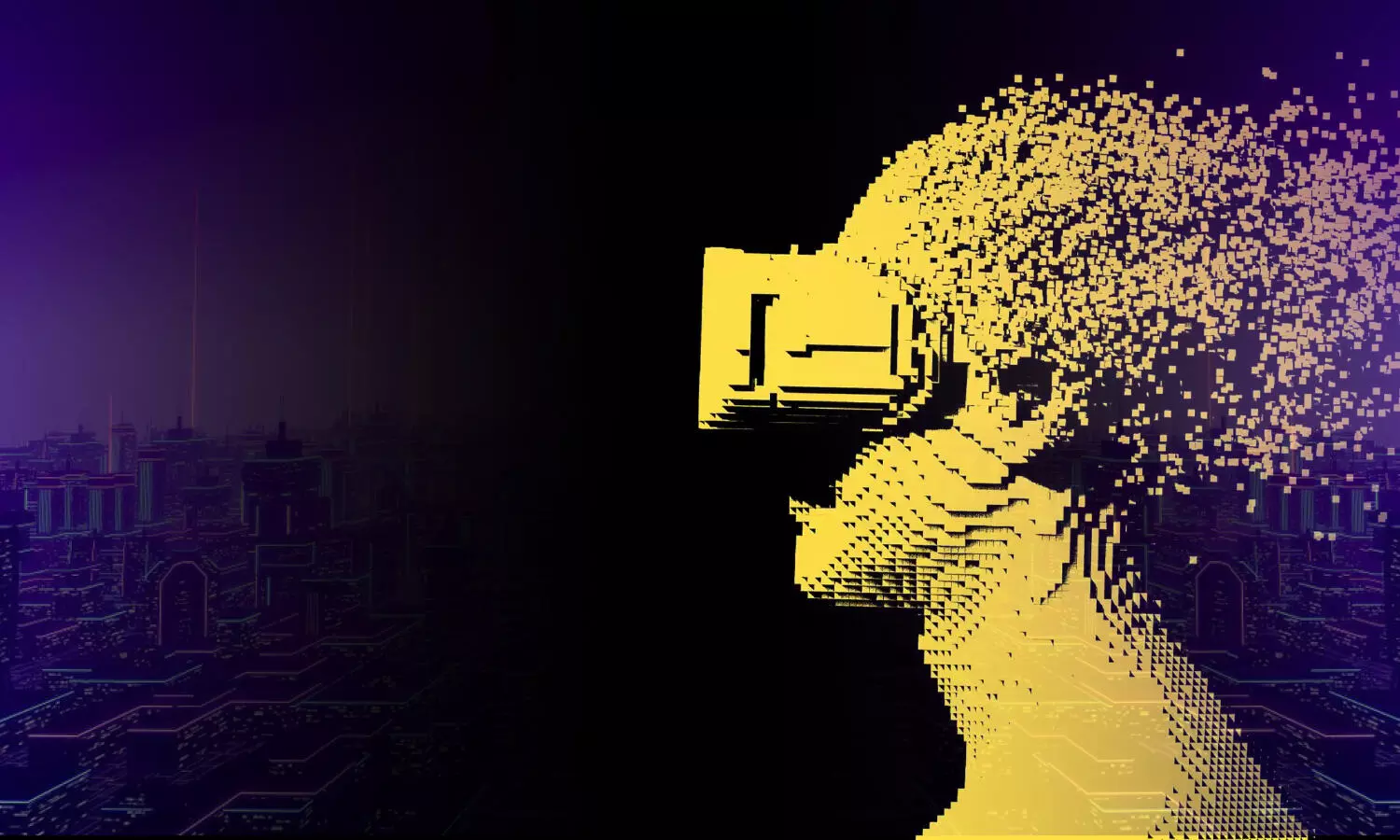- Home
- News
- Articles+
- Aerospace
- Artificial Intelligence
- Agriculture
- Alternate Dispute Resolution
- Arbitration & Mediation
- Banking and Finance
- Bankruptcy
- Book Review
- Bribery & Corruption
- Commercial Litigation
- Competition Law
- Conference Reports
- Consumer Products
- Contract
- Corporate Governance
- Corporate Law
- Covid-19
- Cryptocurrency
- Cybersecurity
- Data Protection
- Defence
- Digital Economy
- E-commerce
- Employment Law
- Energy and Natural Resources
- Entertainment and Sports Law
- Environmental Law
- Environmental, Social, and Governance
- Foreign Direct Investment
- Food and Beverage
- Gaming
- Health Care
- IBC Diaries
- In Focus
- Inclusion & Diversity
- Insurance Law
- Intellectual Property
- International Law
- IP & Tech Era
- Know the Law
- Labour Laws
- Law & Policy and Regulation
- Litigation
- Litigation Funding
- Manufacturing
- Mergers & Acquisitions
- NFTs
- Privacy
- Private Equity
- Project Finance
- Real Estate
- Risk and Compliance
- Student Corner
- Take On Board
- Tax
- Technology Media and Telecom
- Tributes
- Viewpoint
- Zoom In
- Law Firms
- In-House
- Rankings
- E-Magazine
- Legal Era TV
- Events
- Middle East
- Africa
- News
- Articles
- Aerospace
- Artificial Intelligence
- Agriculture
- Alternate Dispute Resolution
- Arbitration & Mediation
- Banking and Finance
- Bankruptcy
- Book Review
- Bribery & Corruption
- Commercial Litigation
- Competition Law
- Conference Reports
- Consumer Products
- Contract
- Corporate Governance
- Corporate Law
- Covid-19
- Cryptocurrency
- Cybersecurity
- Data Protection
- Defence
- Digital Economy
- E-commerce
- Employment Law
- Energy and Natural Resources
- Entertainment and Sports Law
- Environmental Law
- Environmental, Social, and Governance
- Foreign Direct Investment
- Food and Beverage
- Gaming
- Health Care
- IBC Diaries
- In Focus
- Inclusion & Diversity
- Insurance Law
- Intellectual Property
- International Law
- IP & Tech Era
- Know the Law
- Labour Laws
- Law & Policy and Regulation
- Litigation
- Litigation Funding
- Manufacturing
- Mergers & Acquisitions
- NFTs
- Privacy
- Private Equity
- Project Finance
- Real Estate
- Risk and Compliance
- Student Corner
- Take On Board
- Tax
- Technology Media and Telecom
- Tributes
- Viewpoint
- Zoom In
- Law Firms
- In-House
- Rankings
- E-Magazine
- Legal Era TV
- Events
- Middle East
- Africa

A New Universe– called the Metaverse
A New Universe– called the Metaverse

A New Universe– called the Metaverse Futuristic thinking has even led to the coinage of the term "Metalaw" to represent the unique legal framework being constructed to deal with the intricacies of Metaverse challenges It is said that fact is stranger than fiction. During our lifetimes, we are witnesses to the emergence of such phenomena. The term metaverse was coined in Neal...
To Read the Full Story, Subscribe to Legal Era News
Access Exclusive Legal Era Stories, Editorial Insights, and Expert Opinion.
Already a subscriber? Sign in Now
A New Universe– called the Metaverse
Futuristic thinking has even led to the coinage of the term "Metalaw" to represent the unique legal framework being constructed to deal with the intricacies of Metaverse challenges
It is said that fact is stranger than fiction. During our lifetimes, we are witnesses to the emergence of such phenomena. The term metaverse was coined in Neal Stephenson's 1992 science fiction novel, Snow Crash, where humans, as programmable avatars, interact with each other and software agents, in a three-dimensional virtual space. Metaverse can be compared to a 3D internet. People can participate in metaverse activities using a Virtual Reality (VR) headset and a computer or a mobile handset.

Even though it sounds high-tech and not part of our daily lives, many of the readers would be shocked to find out that most children and youngsters are avid players of Minecraft or Fortnite, examples of gaming in Metaverse. We cannot afford to ignore the elephant in the room anymore. Other than extensive use of the metaverse in the gaming industry, proposed applications for metaverse technology include improving work productivity, interactive learning environments, ecommerce, mass-audience interaction, real estate and fashion.
As a measure of the inroads made by metaverse into business, in 2017, Microsoft acquired the VR company AltspaceVR, and has since implemented virtual avatars and meetings held in virtual reality into Microsoft Teams. In 2019, the social network company Facebook launched a social VR world called Facebook Horizon. In 2021, Facebook was renamed "Meta Platforms" and its chairman declared a company commitment to developing a metaverse. Major technology companies have allocated huge amounts of money to further develop advanced hardware and software to cater to the ever-growing demands of diverse Metaverse applications.
It seems to be a pretty exciting roller-coaster ride complete with rainbows in the Metaverse. Why think of legalities in this utopian, ever-happy universe? Well, in defence of the legal world: When winter is here, can spring be far behind? Metaverse application rely on creative content. There have been many instances of content being copied or stolen. People, especially women, participating in gaming applications, have reported several instances of sexual harassment and verbal abuse. Assets within the metaverse are sometimes traded as non-fungible tokens (NFTs) and track ownership using blockchain technology. Fraud pertaining to non-payment or stealing of such assets have been widely reported. It is projected that the Metaverse market may touch $1 trillion by 2030; that leaves a lot of scope for the development of a legal framework encompassing the unique challenges.
As with every new technology, regulatory frameworks need to up the ante. Governments must decide how to fit the technology within existing laws, how those existing laws apply, and to what extent new technology requires new legal restrictions. On Sept. 14, 2022, Thierry Breton, the European Union's Commissioner for the Internal Market, published "People, technologies & infrastructure- Europe's plan to thrive in the metaverse." South Korea's National Data Policy Committee, chaired by its Prime Minister, announced on Sept. 23, 2022, that it would develop regulatory amendments specific to the metaverse. In early 2022, Japan announced creation of a Web 3.0 Policy Office under the Ministry of Economy, Trade and Industry (METI) to formulate metaverse-related policies.
Futuristic thinking has even led to the coinage of the term "Metalaw" to represent the unique legal framework being constructed to deal with the intricacies of Metaverse challenges. Metalaw may use emerging VR and AR technology extensively to counteract the damage done by Metaverse culprits.
As the cynic inside us rears her head to ask whether, we a largely poor developing country should muddle our heads with the problems of the rich and mighty? Aren't we already swimming in our own puddles of salty tears? Alas! We do not have the luxury of ignoring the elephant in the room anymore. It is nudging us firmly, with its long trunk, towards the centre-stage of the world where Metaverse rules supreme. State and international boundaries no longer exist on the metaverse- people across countries bet, gamble, wrangle, and worse. The reason for technologically advanced countries rushing to relook at their existing legal frameworks' readiness vis-à-vis Metaverse is signal enough of a looming, yet invisible iceberg ahead.
Many have opined that long existing Copyright law, Tort law, Intellectual Property law, Defamation law, Contract law and traditional financial regulations such as commodities, banking, and securities laws are more than enough to cope with the so-called problems looming large in Metaverse playfields.
In the metaverse, contract laws can apply to a range of activities, such as renting and selling virtual goods and services. Tort Law in the metaverse will apply to any harm that one user causes to another. This includes emotional distress and property damage in all senses. Defamation laws protect people and entities from being subjected to false and damaging statements being publicised about them. In the metaverse, the same standards will apply to users.
Identity, digital artwork, and digital buildings are all subjected to copyright law. People may propagate real-world brands, identities, and creative works as their own in the Metaverse and will be subject the Copyright law.
Easy, right? Real world laws could be equally applied to Metaverse crimes. Nothing could be farther from the stark reality. In 2022, there have been cases reported from Indian metros about how digital "avatars" were "violated" on gaming metaverse worlds.
Avatars represent the virtual identity of individuals while on the Metaverse with all actions conducted through these digital representations. Our legal framework does not recognise digital avatars and the Metaverse being a global playing field, it is extremely difficult to litigate. Attribution of identity and jurisdiction are key challenges.
Gartner reports that 25 percent of people will spend an hour per day in the Metaverse by 2026 for work, shopping, education, and entertainment, while 30 percent of organisations will have products and services ready for metaverse. Reason enough for law makers to take notice.
The Indian Government announced plans to introduce the Digital India Act (DIA) that will replace the IT Act 2000 to cover crime on Twitter, Facebook, and Metaverse and monitor content on OTT platforms. A welcome announcement, with good intentions to provide relief from pernicious crimes committed in the fantasylands of Metaverse.
Futuristic thinking has even led to the coinage of the term "Metalaw" to represent the unique legal framework being constructed to deal with the intricacies of Metaverse challenges. Metalaw may use emerging VR and AR technology extensively to counteract the damage done by Metaverse culprits.
Semantics apart, common consumers of the retail, training and education and gaming applications look forward to safe and healthy vistas of entertainment and immersive experiences in the rich alleys of the Metaverse.
Disclaimer – The views expressed in this article are the personal views of the author and are purely informative in nature.


